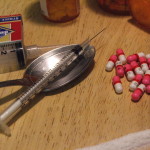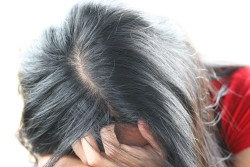There is so much to say about the subject I am about to introduce that I could begin this article from any number of directions. I believe there are stories and there are dynamics. I want to draw your attention away from the charismatic thrill of the story and invite you to look more deeply at the untidy dynamics behind many of the stories the story-tellers tell.
A compulsive need for anything has little to do with the object itself.
In a previous article entitled, “The Sixth Sense,” I taught you that feelings were not to be shared, they were to be experienced. If you are not familiar with the article, please go back and review it before continuing with this months article. Cutting across the grain of conventional wisdom, I want to touch upon the dynamics supporting a growing addiction and the subject of this article – Overeating. I believe overeating is an addiction in the classic sense. There is only one clear statement that applies to all addictions from heroin to food –
Uncontrolled use despite negative consequences.
 To understand the subject of this discussion – Overeating – which I prefer to the more popular term Obesity, you will need to understand tension. Most human feelings and needs are pretty much the same. What gets complicated is how we defend against them. Tension is the pressure caused by chronically denied needs and/or unresolved feelings, which due to pain and hopeless, have been disconnected from awareness or consciousness. Unfulfilled needs and unresolved feelings do not disappear. They continue throughout life exerting forces, channeling interests, and producing motivations toward the satisfaction of those unattended needs and feelings. Not only are unattended needs that persist to the point of intolerability separated from consciousness, but also their sensations become relocated to areas where greater control or relief can be provided. Unfulfilled people learn how to disguise and change their unfulfilled needs into symbolic ones.
To understand the subject of this discussion – Overeating – which I prefer to the more popular term Obesity, you will need to understand tension. Most human feelings and needs are pretty much the same. What gets complicated is how we defend against them. Tension is the pressure caused by chronically denied needs and/or unresolved feelings, which due to pain and hopeless, have been disconnected from awareness or consciousness. Unfulfilled needs and unresolved feelings do not disappear. They continue throughout life exerting forces, channeling interests, and producing motivations toward the satisfaction of those unattended needs and feelings. Not only are unattended needs that persist to the point of intolerability separated from consciousness, but also their sensations become relocated to areas where greater control or relief can be provided. Unfulfilled people learn how to disguise and change their unfulfilled needs into symbolic ones.
Overeaters are not hungrier than anyone else. Overeating is symbolic and as such is self-perpetuating because symbolic satisfactions cannot fulfill real needs. In order for real needs to be satisfied they must be felt and experienced. Unfortunately, pain has caused those needs to be buried and are rarely recognized as such; rather a gnawing empty craving masquerades as hunger. And yet, overeaters do not eat out of physical hunger. Ascending tension, painful feelings on the rise, is largely stuffed back into themselves by whatever food is readily available. Food is their drug, dependency, and addiction.
 Overeaters who must continuously eat are using food as a relaxant much like a constant injection of a tranquilizing drug. One individual expressed it this way, “I used food to eat away the tension which was eating away at me. My whole life was planning for the next meal. There was so little else in my life so food had to do and be everything for me.”
Overeaters who must continuously eat are using food as a relaxant much like a constant injection of a tranquilizing drug. One individual expressed it this way, “I used food to eat away the tension which was eating away at me. My whole life was planning for the next meal. There was so little else in my life so food had to do and be everything for me.”
No one is more ingenious than an addict out to score.
There are many dynamics that go into making an overeater. What is crucial to keep in mind is that eating is an outlet for many kinds of needs. Food quells pains that are unrelated to physical hunger. Thus to discuss food problems is often useless therapy and support. Food may be chosen to quell pain instead of drugs or alcohol because a person’s subculture placed a heavy emphasis on eating while having strong prohibitions against alcohol. Some people fear becoming sexually attractive. Another eats because food is more available than love. Others overeat to fill up so as not to feel unfulfilled. One woman confessed, “I never lived in my body because there was too much pain. So I lived in my head and fed my body food to quiet the gnawing hurt.”
If it is true that inside every fat person there is a thin person desperate to be recognized, then be assured, there is a real person inside every unreal one. If the truth were known, the obese person is literally presenting an unreal front to the world in an attempt to insulate the real person inside.
From my years of private practice I have observed the more normal the body the closer the person is to their reality, a truth destined to set them free. Following successful Bariatric Surgery with the unreal front removed, overeaters must be watched almost as closely as a drug addict when their defenses are down. Post-surgical patients will be vulnerable until most of their real needs are felt. Addiction switch is a real possibility.
As long as the overeater can dwell on food they will never learn the truth of what happened when.
 One patient expressed it this way, “If I got thin and life was not any better than it was when I was fat, I’d really be out of hope. There was hope in being fat, hope of getting thin. More than that, I could feel that it was my fatness that caused my social rejection and not really me.”
One patient expressed it this way, “If I got thin and life was not any better than it was when I was fat, I’d really be out of hope. There was hope in being fat, hope of getting thin. More than that, I could feel that it was my fatness that caused my social rejection and not really me.”
If you want to lose the weight that surgery could not fix, then please commit to scheduling a therapy appointment with a trained professional that will do much more for you than count your calories.
There is as much hope in the world as the responsibility any one of us are willing to assume.


